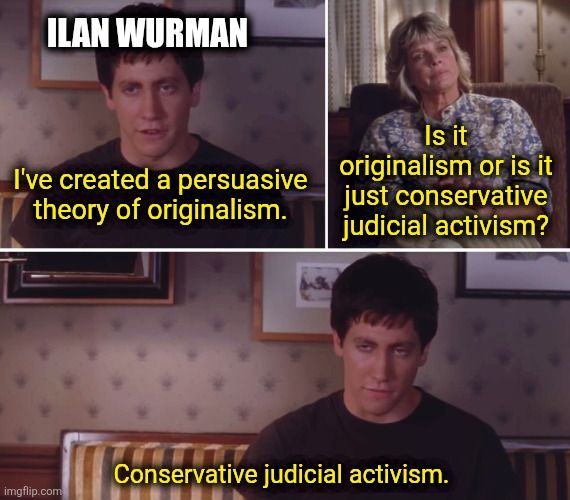

!["But maybe there is no argument, maybe Wurman prefers a narrow reading of ["subject to the jurisdiction thereof"] because he likes the outcome that results, and he likes a broader reading of the Cruel and Unusual clause because he likes those outcomes. These may be his preferences, but Wurman will have to argue these preferences on the merits; the hermeneutic albatross of Originalism he presents does not help him. It certainly will not help judges, unless the goal is to obscure their present political desires behind the hypothetical reasonable person from the 18th century."](https://cdn.bsky.app/img/feed_thumbnail/plain/did:plc:w5gcgk27r4amcg2n5mutfin4/bafkreiggxs562mmnhb3wmib6duwrpzke2wqsdanckflxs6cessti6chuoy@jpeg)
Yes, Sauer replies.


As we roll through the 2 o'clock hour on the West Coast it's great to see this check-in from contributing editor Adam Rust. Among his good works, Adam clocked Big Law's attempts to appease Trump back in April:
As we roll through the 2 o'clock hour on the West Coast it's great to see this check-in from contributing editor Adam Rust. Among his good works, Adam clocked Big Law's attempts to appease Trump back in April:



This skeet brought to you by my frantic text to @jcrider.bsky.social to find my copy of Feminist Interpretations of Søren Kierkegaard so I can finally give it to @asrust.bsky.social.












